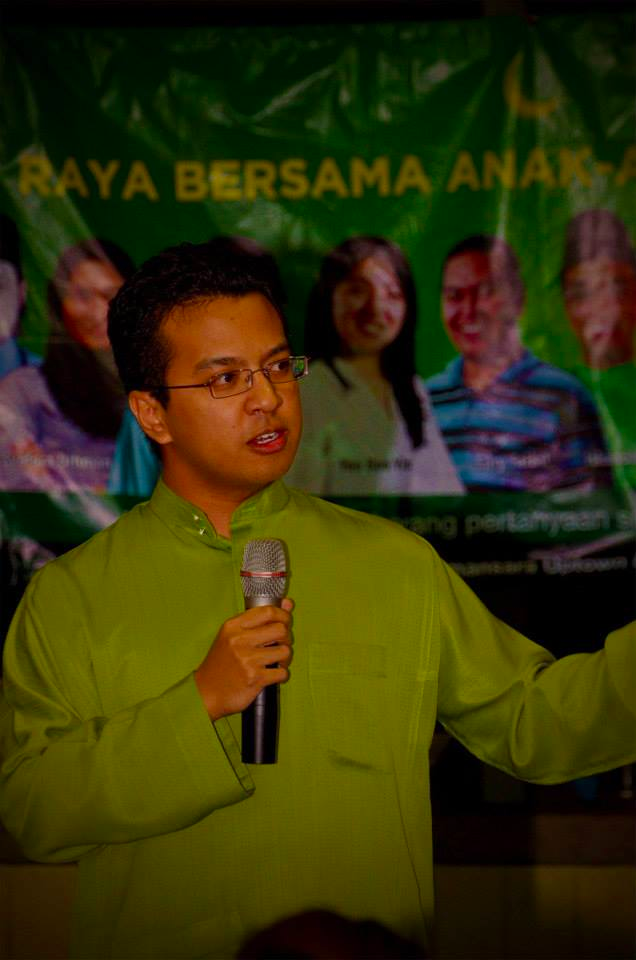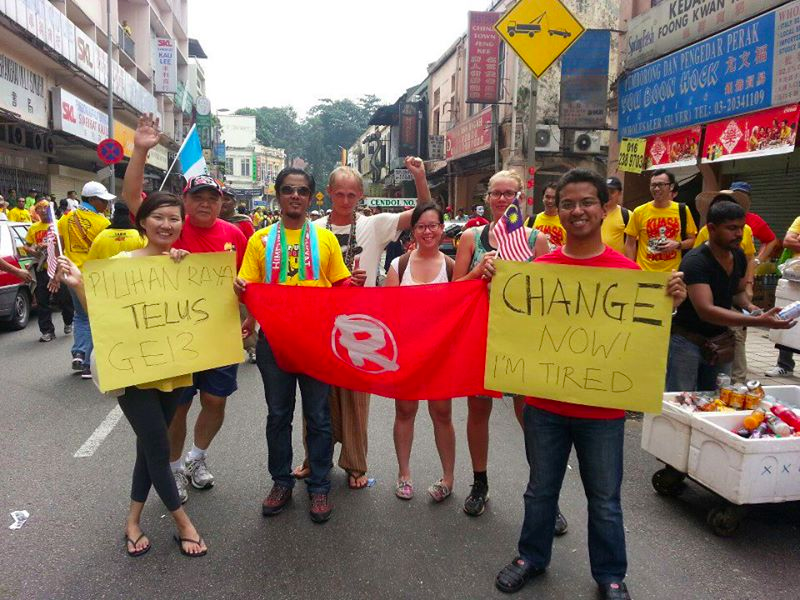More young Malays are thinking for themselves and not afraid to defy convention in their political choices. It takes courage to go against the grain and those who stand out from the crowd are often vilified for daring to be different. Several young Malay DAP members tell us why DAP best represents their aspirations.
Silent no more
It took six months of observation, exposure and consideration before Raja Ahmad Iskandar Fareez decided to take the plunge to join DAP.
As the 25-year-old puts it, “I did not want to join DAP just because it was going against BN.”
After getting to know the ideology of the party and being comfortable with its struggle, Iskandar felt that it mirrored his own beliefs in freedom, social justice, and solidarity for all Malaysians.
The Shah Alam lad was troubled by the constant hateful and racist remarks of extremists which dominated the headlines.
“Generally, many Malaysians are upset with these (irresponsible) statements. But most of us still fall under the ‘silent majority’ category. As Malaysians, we stand for moderation and peace. I want to bring this message across – the Malaysia belongs to all Malaysians.”
Having had enough of the bigotry around him, Iskandar felt it was time to stand up and voice out against extremism. That’s when he had an opportunity to get involved with politics, and he chose to join the party because of its aspiration of a Malaysian Malaysia.
Iskandar was exposed to DAP through his involvement in student organisations in Canberra, Australia, where he was studying in the Australian National University. The Malaysian Interest Group at his university met every fortnight to discuss Malaysian current affairs, despite being away from home.
The group hosted many visiting politicians and activists who visited Canberra, including Nurul Izzah, Shahrir Samad, Ambiga Sreenevasan and Raja Petra Kamaruddin. During his second year, they also hosted a public lecture by DAP’s Kluang MP, Liew Chin Tong.
While Iskandar had always been interested in political developments in Malaysia since the age of 17, the close encounter with Liew gave Iskandar a taste of what DAP stood for, and it piqued his interest.
“I was intrigued by the principles of equality of opportunity that DAP was fighting for. The First Bersih rally opened my eyes to the possibility of change in the country. The 2008 General Election further strengthened this belief and got me following Malaysia’s current events more closely.”
By the time Bersih 2.0 rolled out, Iskandar was inspired to join the organising team for Global Bersih in Australia. He continued to be active in civil society movements and participated in Bersih 3.0 together with his friends, this time on home soil.
“Malays are conditioned to avoid DAP”
The Malay College Kuala Kangsar alumni shares with us that the propagation of racial politics has made many Malays shy away from the party.
“BN has painted such a horrible picture of DAP that Malays try their best to avoid making contact with the party… most probably because of the the fear of the unknown and the uncertainty that follows it.“
Most people do not understand that the party represent the interests of all Malaysians regardless of race, he says, adding that people often fear what they do no understand.
He admits that it will be a long and arduous process to get more people of all races to break free from this cycle of race-based politics, however by focusing on policies instead of race, this will be the way forward.
“Being a Malay does not impact how others treat me in DAP. The same goes if you are Chinese, Indian or from any other ethnicity.
“Race does not have any bearing in this party. It’s a party that fights for its principle and not any for any skin colour. It is not a matter of who you are or where you come from, but it’s a matter of what you do to fight for what is right.”
Together, we can make a difference
 To the cynics and skeptics, Iskandar says that each person’s efforts count and there is no such thing as “being too insignificant to change anything”.
To the cynics and skeptics, Iskandar says that each person’s efforts count and there is no such thing as “being too insignificant to change anything”.
He points to the example of the would-be ban by Federal Territories Minister Tengku Adnan Tengku Mansor on soup kitchens in Kuala Lumpur.
When Tengku Adnan proposed the ban, people voiced against the action. Many people expressed their unhappiness at the measure through whatever means they could – letters, social media, etc. Finally, the ban was scrapped.
“Imagine if no one had voiced out against the action thinking that their opinions do not matter… (the authorities) would have probably gone ahead with the idea.
“Some people say that we do not need to care because one person would not make a difference. Indeed, one person alone cannot change the world. But it only takes one more person to make a difference.” -The Rocket
(* To read the full version of this article and other stories, buy the September issue of The Rocket)
Stay tuned for Part 3




